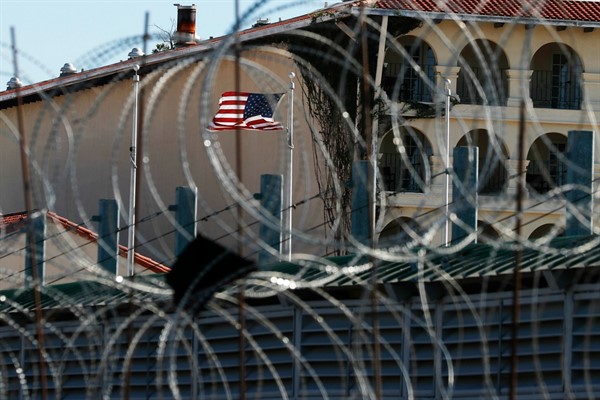President Donald Trump touts them as campaign promises he has delivered on, but by reversing Washington’s long-standing commitment to open markets and clamping down on immigration, he may have done permanent damage to the U.S. economy and America’s global reputation. Tariffs, especially against China, are now higher than they have been in decades. American acceptance of refugees is sharply lower, and the Trump administration has recently turned its sights on temporary foreign workers and foreign students. Although the tariff increases and some of Trump’s executive actions against immigration could be undone if his Democratic challenger, Joe Biden, wins in November, their aftershocks will be felt long after Trump’s tenure.
Trump expected his tariff increases, and continued threats of more of them, to encourage manufacturers to relocate production to the United States, and to compel China to undertake structural reform of its state-led economy. But neither has happened. The tariffs on steel and aluminum raised costs for downstream producers, making them less able to compete with imports and making the U.S. a less attractive place for manufacturing. There has been some reshuffling of supply chains in response to fragilities exposed by the coronavirus pandemic, along with the tariffs, but it has mostly been to other locations in Asia. Today, Beijing is even less likely to loosen its grip on the economy in the face of Washington’s hostility, especially since Trump has made confronting China a major part of his reelection campaign.
Like the increased taxes on imports, the White House frequently claims that reduced migrant flows are necessary to save American jobs. Yet according to a substantial and growing body of research, immigrants bring skills, knowledge and entrepreneurship; overall, they complement rather than compete with American workers. The harsh rhetoric that Trump frequently aims at migrants suggests that the primary motive is actually to appeal to nativist and racist attitudes among his core base of supporters. In his initial 2016 campaign, Trump focused on deterring and deporting illegal migrants and falsely claimed that most immigrants from Mexico were rapists and drug traffickers. One of his first steps after taking office in January 2017 was to issue an executive order banning travelers from seven majority-Muslim countries—delivering on another campaign pledge—and suspending acceptance of all refugees from Syria. While the courts overturned that initial order, the Supreme Court upheld a revised version in 2018.

